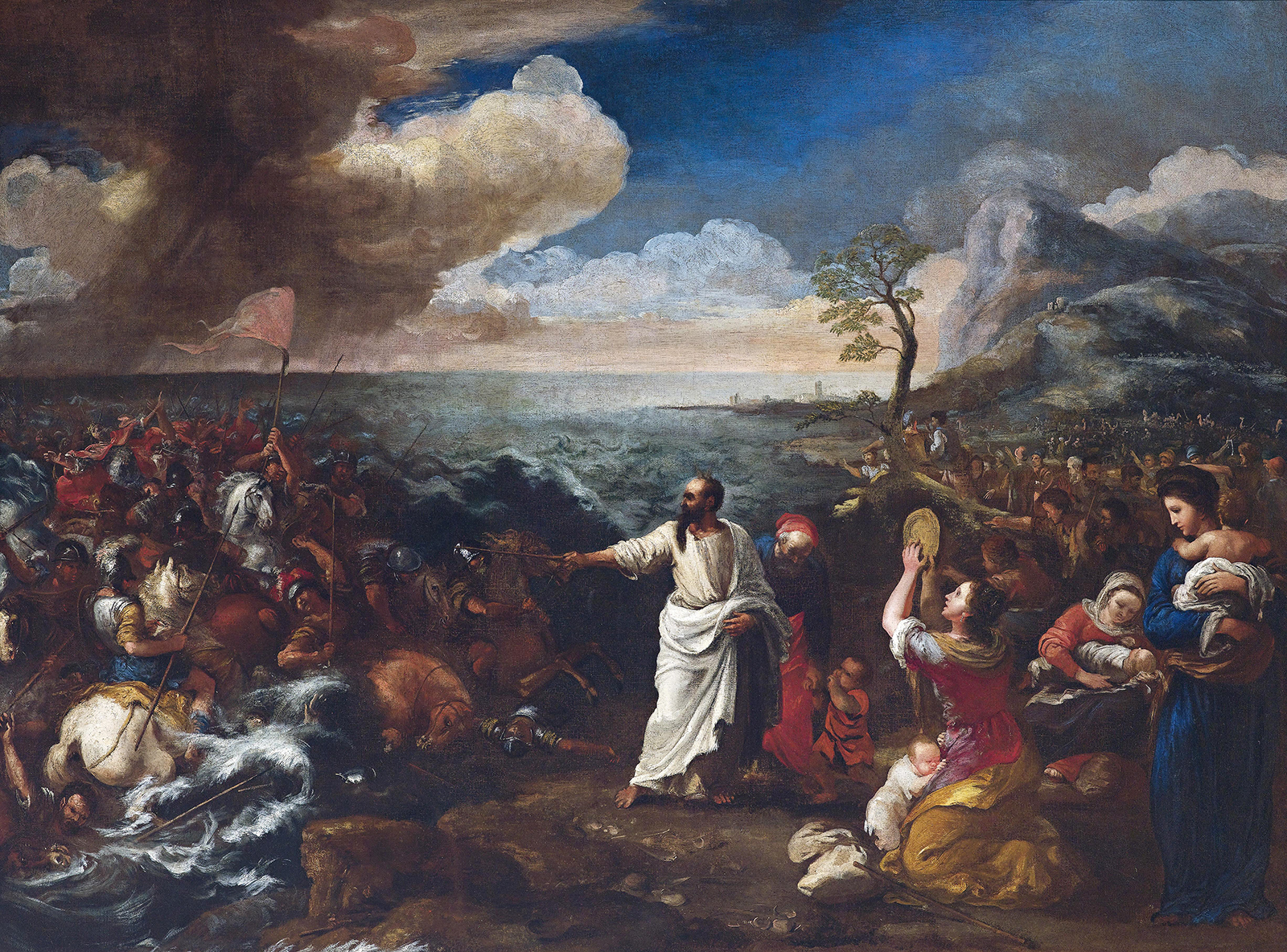(RNS) — Something key to the book that has guided Passover Seders for more than two millennia offers all Americans today, regardless of faith or cuisine, timely food for thought.
Although the Haggadah — the Passover Seder reader — is an eclectic compendium, featuring Biblical narratives, poetry and songs, its stripped-down essence is described in the Mishna, the earliest Talmudic text, starkly: “We begin with degradation and proceed to praise.”
What exactly that means is the subject of Talmudic argument (it’s the Talmud, after all). One opinion is that the “degradation” refers to early Abraham-era idolatry and the “praise” to the Jews’ embrace of monotheism.
Another rabbi saw the “degradation” as the enslavement of the Jews in Egypt, the escape from which Passover celebrates. Like all slavery, the Jews’ servitude forged a demeaned mindset in the oppressed; hence, degradation. The “praise” is the divine delivery of the Jews to freedom.
What’s clear, though, is that the ancient rabbis considered stressing the “bad old times” of the past essential to the Passover celebration.
Recalling slavery is an understandable element to include on Passover, since no one can comprehend the import of freedom and savor it quite like a former slave.
But the second opinion’s admonition to remember inglorious roots in idolatry? Who ordered that?
The ancient rabbis, I think, conveyed a subtle but vital message: Liberation from misguided ideas parallels liberation from physical servitude. Remembering the experience of slavery is essential to truly, fully appreciating physical freedom; recalling abhorrent beliefs is likewise necessary to truly appreciating subsequent spiritual growth.

“The Passage through the Red Sea” by Jacques Courtois in 1676. Image courtesy of Creative Commons
One who has gone from spiritual degradation to refinement, the Talmud is saying, should not deny or try to erase memory of the earlier darkness. On the contrary, by recalling it clearly, he is able to truly appreciate its upshot: the blessing that is his present.
That truth isn’t limited to Jews and Jewish history, or to individuals. It is poignantly pertinent to all Americans’ perception of our country’s history.
That the United States is a beacon of freedom and democracy today is no reason to obscure or ignore elements of our country’s past that leave us far from proud. It is, rather, a compelling reason to remember them.
The English colonists who landed on our shores in 1607 and laid the groundwork for what would later become a country committed terrible crimes against the human beings they found here. Over the course of two centuries, millions — quite literally — of Native Americans were killed by the European settlers of the land, not only in the course of repelling attacks but also, it must be said, for no morally defensible reason.
Knowing, and dwelling on, that fact doesn’t mar the nation that we are part of today; quite the opposite. The “degradation” of some of those who settled the land, just like the idolatry at the roots of the Jewish people, deserves — demands — our focus. Not only because it is true and truths should not be denied, but also because it helps us better appreciate how far our country has come.
And the same is true of other, more recent “degrading” truths in the American past, whether slavery and its defense over so many decades, the erstwhile popularity of the Ku Klux Klan, Jim Crow laws, the internment of tens of thousands of Japanese-Americans during World War II, or Vietnam-era atrocities like the My Lai massacre.
Sadly, these days, many in our country have become infected with a partisan us-vs.-them mentality and view the incorporation into educational curricula of regrettable facts of our nation’s history as some sort of a betrayal of America.
To be sure, our country remains far from perfect. But it has traveled light years above its past degradation. And so, it merits celebration — which includes focus on the unfortunate pieces of American history.
So while the Haggadah will be on many Jews’ tables this Passover, as every Passover, its core message — the importance of recalling uncomfortable truths — belongs on every American’s plate.
(Rabbi Avi Shafran is director of public affairs for Agudath Israel of America, a national Orthodox Jewish organization. He blogs at rabbishafran.com. This was adapted from “The Promise of Liberty Haggadah,” edited by Stuart Halpern and Jacob Kupietzky, to be published in 2024 with Maggid Books. The views expressed in this commentary do not necessarily reflect those of Religion News Service.)





